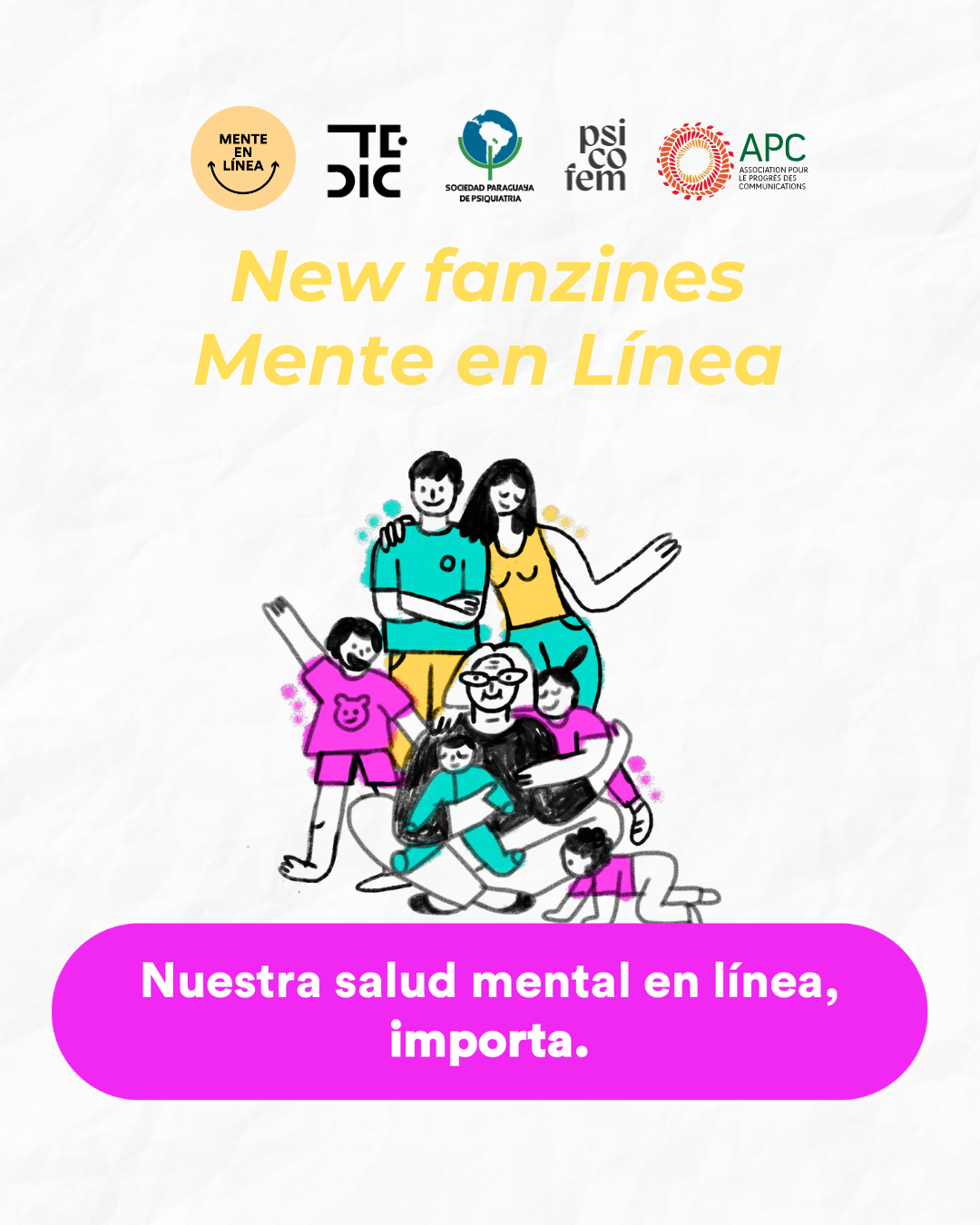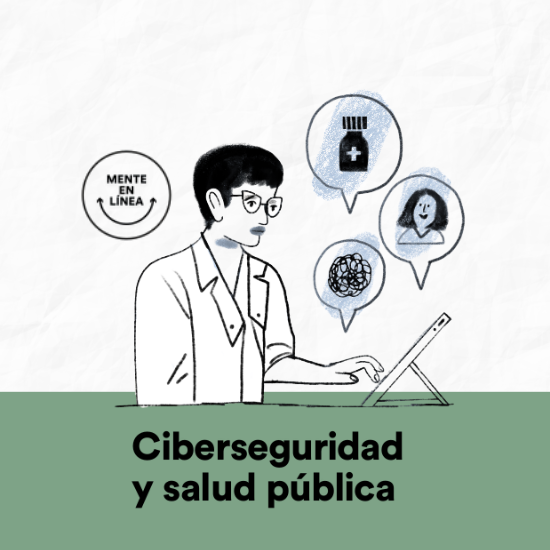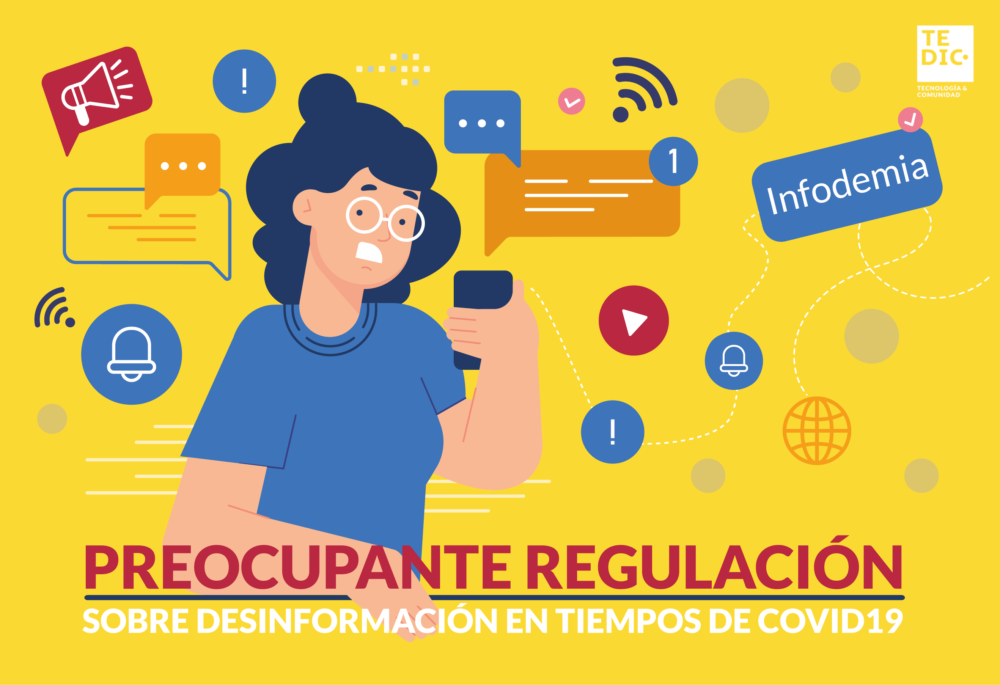
As part of Cybersecurity and Mental Health Month, TEDIC, in collaboration with the organizations PsicoFem and the Paraguayan Psychiatric Society, is presenting a new fanzine and updates to three materials from the Mente en Línea (Mind Online) project, in which we seek to disseminate resources for further exploration of the various factors that impact our behavior and mental health when interacting with digital technologies.
After the Covid-19 pandemic, the use of technologies and our connection to the digital environment increased unprecedentedly. Although the pandemic is over, hyperconnectivity has not decreased; on the contrary, it continues to increase. It is in this context that we see the need to continue talking about our mental health online.
The effects of hyperconnectivity, the violation of our online privacy, technostress, etc., have an impact on our physical lives: they disrupt sleep, create dependency, anxiety, and other discomforts. That is why, at TEDIC, we want to share tools with you to take care of your mental health, that of the children and adolescents in your care, and that of the people around you.
We are also working with Dr. Rodrigo Ramalho, a psychiatrist, to develop the paper Cybersecurity and Public Health, in which we delve into the importance of incorporating a health sector perspective into public cybersecurity policies.
Learn about the new materials
The new fanzine, written by Psicofem and the Paraguayan Psychiatric Association, is aimed specifically at caregivers of children and adolescents and addresses the issue of online privacy.
Often, without realizing it, we expose sensitive information about the children in our care: photos of them in their school uniforms, intimate videos of our daily lives, images that we find funny, but that could put their privacy and mental health at risk.
Online privacy is a fundamental right of children and adolescents, protecting their confidentiality and control over their personal information. In the fanzine “Children’s Online Privacy,” we delve into this right, what it entails, the risks of it being violated, and useful tips to apply with our children.
Protecting privacy is not about control, but rather about constant support and dialogue to find the best ways to manage it. Read the entire fanzine here.


Screens have become part of our daily lives. They are no longer just technologies that facilitate work, but also serve to help us socialize, study, have fun, and even raise the children and adolescents in our care.
In the updated fanzine “Our life on screens,” we discuss official recommendations on screen time for each age group, encouraging conscious use in the company of adults and promoting playful and educational content.
You can read the recommendations, examples of healthy habits, and other reflections in the fanzine here.
It is no coincidence that, despite being exhausted from staring at screens, we continue to scroll through content without being able to stop: social media is designed with a mechanism to capture and hold our attention.
Persuasive technologies put us in a state of constant alertness and connectivity, which can have other negative consequences by interrupting our attention, sleep, and even physical social interactions.
In the fanzine “Technostress and digital addiction,” we tell you how technologies seduce us into staying connected and what we can do about it. Read more about it here.


In these times, when digital technology permeates all areas of our lives, disconnecting becomes essential and fundamental. We know that it is not easy, as it requires conscious effort and often does not depend on our individual desire; however, there are ways to find a balance.
In the fanzine “Digital detox and mental health,” we discuss the effects of hyperconnectivity on our physical and mental health. With the help of psychologists, we propose ways to disconnect, detoxify, and tools for collective care. Read this material here.
A comprehensive, democratic, and people-centered public cybersecurity policy includes various sectors that affect the lives and data of citizens, such as education, childhood and adolescence, and health.
In the paper “Cybersecurity and Public Health,” Dr. Rodrigo Ramalho addresses the security of health data, technology-facilitated gender-based violence, and other digital threats to public health.
From the perspective of “health in all policies,” Ramalho analyzes the National Cybersecurity Strategy, pointing out the lack of this perspective in the document and making recommendations for protecting health data and the mental and physical health of users of the health system.

Access the project at www.menteenlinea.org

 Worrisome regulation on disinformation in times of COVID19
Worrisome regulation on disinformation in times of COVID19